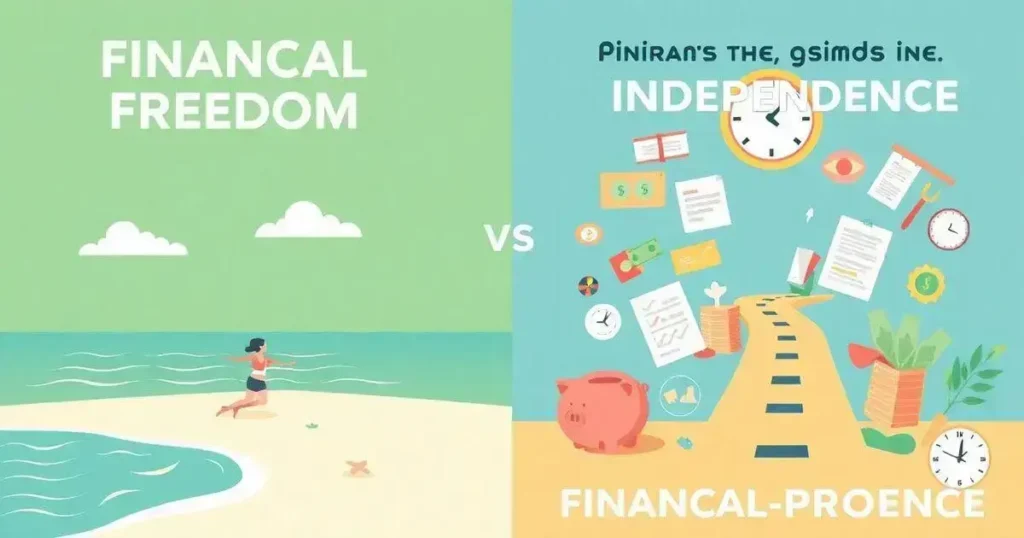Debt management is crucial for taking control of your finances and securing a better financial future. With the right strategies, you can reduce debt and prevent future money problems. Understanding how to manage debt effectively can help you feel more in control of your financial situation.
Creating a budget and prioritizing debt payments is key to getting ahead. By knowing where your money goes, you can make smarter decisions and avoid falling deeper into debt.
Ready to start? Keep reading to learn the best techniques for managing debt and building a solid financial plan.
Understanding Debt Management
Understanding Debt Management is the first step toward achieving financial stability. It involves planning and monitoring your financial situation to effectively handle and pay off debts.
Many individuals struggle with debt due to overspending, unexpected expenses, or lack of budgeting. By gaining a grasp on debt management, you can avoid falling into deeper financial trouble.
Creating a budget is essential in this process. A budget helps you track your income and expenses, allowing you to allocate funds effectively and prioritize debt repayment.
It is beneficial to categorize your expenses to identify areas where you can cut back.
Another important aspect of debt management is understanding the different types of debt. There are secured debts, like mortgages and car loans, which require collateral, and unsecured debts, such as credit cards and personal loans. Recognizing the difference can help you develop appropriate repayment strategies.
Additionally, consider exploring various debt management strategies. For instance, the snowball method focuses on paying off smaller debts first, while the avalanche method tackles higher-interest debts to save money in the long run. Each approach has its pros and cons, and it’s essential to choose one that aligns with your financial situation.
Lastly, remember that seeking help is okay. If you’re feeling overwhelmed, financial advisors and debt counseling services can provide guidance and support tailored to your needs.
Understanding debt management is key to a healthier financial future.
The Importance of Creating a Budget

Creating a budget is vital for effective debt management. It allows you to understand your income and expenses clearly. Start by listing all your monthly income sources, including your salary and any side jobs. Next, track your expenses, dividing them into fixed and variable categories.
Fixed expenses are those that do not change, such as rent or mortgage payments, while variable expenses include groceries, entertainment, and other discretionary spending. Prioritizing your expenses can help you identify areas for potential savings.
After gathering this information, create a monthly budget that balances your income and expenses. It’s important to set realistic spending limits to reduce unnecessary expenditures. By sticking to this budget, you can allocate more funds toward paying off your debts.
Additionally, regularly reviewing your budget can help you adjust for any changes in income or expenses over time. This ongoing process supports better financial management and helps you stay on track in your journey toward a debt-free future.
Different Debt Management Techniques
Different debt management techniques can help individuals regain control over their finances. One effective method is the debt snowball technique, where you focus on paying off your smallest debts first.
Once the smallest debt is settled, you move on to the next smallest, gaining momentum as you go. This approach provides psychological benefits, as completing each payment can boost your motivation.
Another popular method is the debt avalanche technique. Here, you focus on paying debts with the highest interest rates first. This can save you money in the long run and is a more cost-effective strategy. Both techniques require careful planning and discipline to implement successfully.
Additionally, consider consolidating your debts into a single loan with a lower interest rate. This can simplify payments and potentially lower your monthly costs. Another option is enrolling in a debt management plan through a credit counseling agency. These professionals can help negotiate better terms with creditors and create a structured repayment plan.
Understanding and selecting the right technique for your situation is crucial. Each individual’s financial circumstances differ, so it’s essential to choose a method that aligns with your goals and capabilities.
How to Choose the Right Strategy for You
Choosing the right debt management strategy can feel overwhelming, but it is crucial for financial success. Start by assessing your total debt amount and the interest rates on each debt. This evaluation will give you a clearer picture of your financial situation.
Next, consider your income and monthly expenses. Knowing what you can afford to pay will help you decide on a strategy that works for you. If your debts are manageable, the debt snowball method may be suitable. This technique focuses on paying off the smallest debts first, providing motivation as each debt is eliminated.
On the other hand, if you have high-interest debts, the debt avalanche method might be more effective. This approach involves paying off debts with the highest interest rates first, saving you money over time. Remember, both strategies require discipline and commitment.
You should also consider factors like your stress level and the amount of time you can dedicate to debt repayment. If you find it hard to manage debt alone, professional help from a credit counseling service can be beneficial. They can assist you in finding the best approach for your specific situation.
Ultimately, the right strategy will depend on your personal circumstances and comfort level with various techniques.
Common Mistakes in Debt Management
Common mistakes in debt management can lead to further financial trouble. One frequent error is not creating a budget. A budget helps track spending and prioritize debts to pay off.
Another mistake is ignoring high-interest debts. Some people focus on paying off smaller debts first, neglecting larger debts that accrue more interest. This can cost more in the long run.
In addition, many individuals make the error of not communicating with creditors. If you are facing difficulties, reaching out to your creditors can lead to more manageable payment plans or reduced interest rates.
Additionally, relying solely on credit cards for emergency expenses is a mistake. Building an emergency fund can help prevent this situation. It protects you from accumulating more debt when unexpected costs arise.
Lastly, failing to seek professional help is a common mistake. If you feel overwhelmed, consulting a credit counselor can provide valuable guidance and tailored strategies to improve your debt management efforts.
Seeking Professional Help: When to Consider It

Seeking professional help for debt management can be a wise choice when your finances feel overwhelming. If you find it hard to make payments or manage multiple debts, a financial advisor can provide expert guidance tailored to your situation.
Consider consulting a credit counselor when you’re unsure about your payment options or how to create a budget. These professionals can help negotiate with creditors to possibly lower your interest rates or develop a manageable repayment plan.
Another reason to seek help is if you notice you are avoiding calls from creditors. Ignoring these communications can lead to increased debt and further financial stress. A professional can assist in setting up a proactive approach to dealing with these challenges.
In cases of severe financial distress, such as potential bankruptcy, it is crucial to consult a lawyer specializing in bankruptcy or debt settlement. They can inform you of your rights and help you make informed decisions.
Overall, knowing when to seek professional help can be the key to regaining control over your finances and finding a path toward a debt-free future.
Building a Debt-Free Future
Building a debt-free future is achievable with dedication and the right strategies. Start by setting clear financial goals. Knowing what you want to achieve will help guide your actions and keep you focused.
Next, create a realistic budget that prioritizes debt repayment. Allocate a portion of your income specifically for paying off debts while covering essential living expenses. This plan is vital to maintaining financial discipline.
One effective method to reduce debt is the debt avalanche approach, where you focus on paying off the debt with the highest interest rate first. This strategy can save you money over time. Alternatively, the debt snowball method pays off the smallest debts first, providing quick wins that can motivate you to continue.
Always look for additional ways to increase your income. Taking on a side job or selling unused items can generate extra cash to apply toward your debts. This proactive approach reduces reliance on credit and accelerates your journey to a debt-free life.
Lastly, stay committed and review your progress regularly. Adjust your budget and strategies as needed to stay on track. Remember that building a debt-free future is a marathon, not a sprint.
FAQ – Frequently Asked Questions about Debt Management
What is debt management?
Debt management refers to strategies and practices designed to help individuals handle and pay off their debts effectively.
How can I create an effective budget for debt management?
Start by listing your income and all expenses, then allocate a portion of your income to pay off debts systematically.
What are the different techniques for managing debt?
Common techniques include the debt snowball method, the debt avalanche method, and debt consolidation.
When should I seek professional help for my debts?
You should consider seeking help if you’re overwhelmed with payments, ignoring creditor calls, or unsure how to manage your debt.
What common mistakes should I avoid in debt management?
Avoid ignoring your debts, not budgeting, focusing only on small debts, or failing to communicate with creditors.
How can I build a debt-free future?
Set clear financial goals, create a budget that prioritizes debt repayment, and seek additional income sources to help pay off debts.


